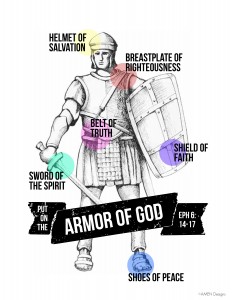Our government leaders face a difficult decision on whether to allow Syrian refugees into our country or not. I appreciate the tension they face on our behalf. Do they turn refugees away to protect us as citizens, or do they allow them here to show compassion?
I wonder whether we would struggle with this question if terrorists had not bombed Paris. Suppose the Syrian refugees were fleeing their country because of oppression and lack of safety? If they came to us for help, would we be receptive? My hunch is yes. However, we do have the Paris bombings as our context. Now it appears we’re more resistant to allowing Syrian refugees into our country out of fear.
As Christ-followers how should we respond? I believe Jesus calls us to show compassion. Here are some key Scripture passages we can apply in this situation:
God expects us to show compassion.
Ps 82:3 – “Defend the cause of the weak and the fatherless; maintain the rights of the poor and the oppressed.”
Ps 103:8 – “The Lord is compassionate and gracious, slow to anger, abounding in love.”
Ps 146:7, 9 – “He upholds the cause of the oppressed and gives food to the hungry. The Lord sets prisoners free. The Lord watches over the alien and sustains the fatherless and the widow, but He frustrates the ways of the wicked.”
2 Cor 1:3-4 – “Praise be to the God and Father of our Lord Jesus Christ, the Father of compassion and the God of all comfort, who comforts us in all of our troubles, so that we can comfort those in any trouble with the comfort we ourselves have received from God.”
Col 3:12 – “Therefore, as God’s chosen people, holy and dearly loved, clothe yourselves with compassion, kindness, humility and patience.”
God made us in His image, so we should reflect Him by serving those in need. We glorify Him when we choose compassion toward others.
“Do Unto Others as You Would Have Them Do Unto You”
Matt 7:12 – “So in everything, do to others what you would have them do to you, for this sums up the Law and the Prophets.”
Can you imagine having to flee your homeland to find peace and safety for your family? If you arrived on the borders of a foreign land, wouldn’t you want to receive compassion and mercy? These refugees are desperate for help. They must feel emotionally and physically exhausted. Let’s reach out to them and give them the help and care they need. All they have is the shirt on their backs.
“Whatever You Did for the Least of These Brothers, You Did for Me”
Matt 25:35-36, 40 – “For I was hungry and you gave me something to eat, I was thirsty and you gave me something to drink, I was a stranger and you invited me in. I tell you the truth, whatever you did for one of the least of these brothers of mine, you did for me.”
Matt 25:42-43, 45 – “For I was hungry and you gave me nothing to eat, I was thirsty and you gave me nothing to drink, I was a stranger and you did not invite me in. I tell you the truth, whatever you did not do for one of the least of these, you did not do for me.”
The Lord is watching us. He knows who is taking care of the needy and those who have turned their backs on the hurting. He makes it clear that when we minister to the broken, it’s the same as ministering to Him.
“Love Your Enemies”
Matt 5:43-44 – “You have heard that it was said, “Love your neighbor and hate your enemy. But I tell you: love your enemies.
The Syrian refugees are not our enemies. They are running from terror, not bringing it. They are not ISIS who pronounces us as their enemy when we aren’t looking for a fight. One way we can love the Syrians is to not label them as “potential terrorists.” They have enough stress without defending who they are not.
“Do Not Fear”
God is bigger than our real enemy, who is Satan. We are NOT up against “flesh and blood.” God is quite capable of protecting us as we serve those in need.
When God delivered the Israelites out of slavery in Egypt, they were in unchartered territory. He gave them a set of rules to follow to foster community, one of which was “Do not mistreat an alien or oppress him, for you were aliens in Egypt.” (Ex 22:21) But here is what He promised to them as He led them to the Promised Land: “If you will listen carefully to what my angel says and do all that I say, I will be an enemy to your enemies and will oppose those who oppose you.” (Ex 23:22)
Matt 10:26-28 – Jesus said, “So do not be afraid of them…Do not be afraid of those who kill the body but cannot kill the soul. Rather, be afraid of the One who can destroy both soul and body in hell.”
Satan is the author of evil and fear. When we Enemy ensnares us in fear, we are right where the wants us. Let’s remember that Christ who is in us is greater than he who is in the world! (I John 4:4)
Where do you stand? Do you think we should keep the Syrian refugees out to protect ourselves, or show compassion? If you have a minute, please share your welcomed thoughts below.
Blessings,
Lee Ann










